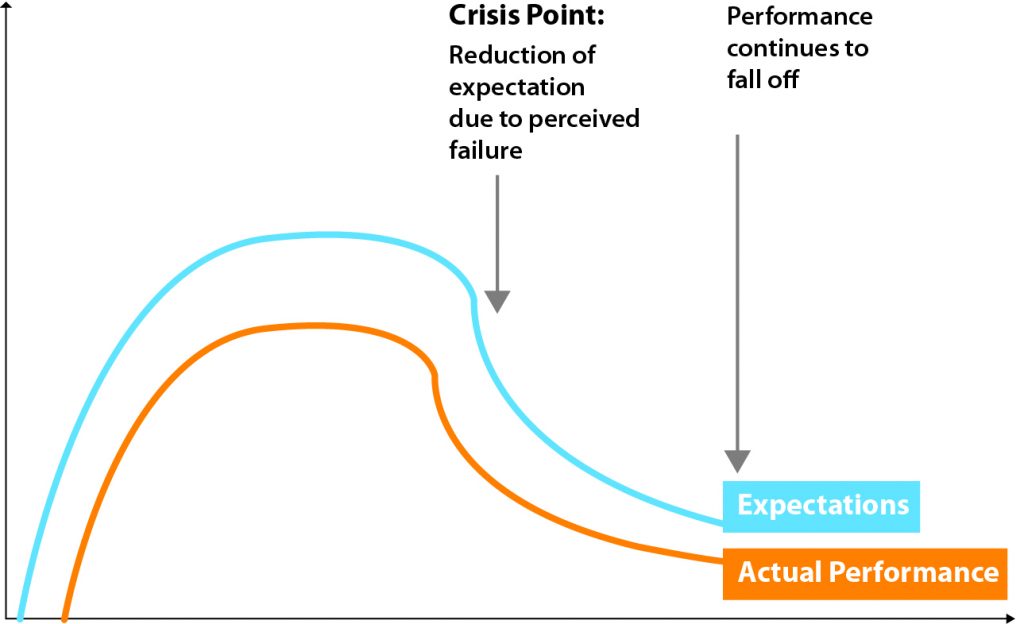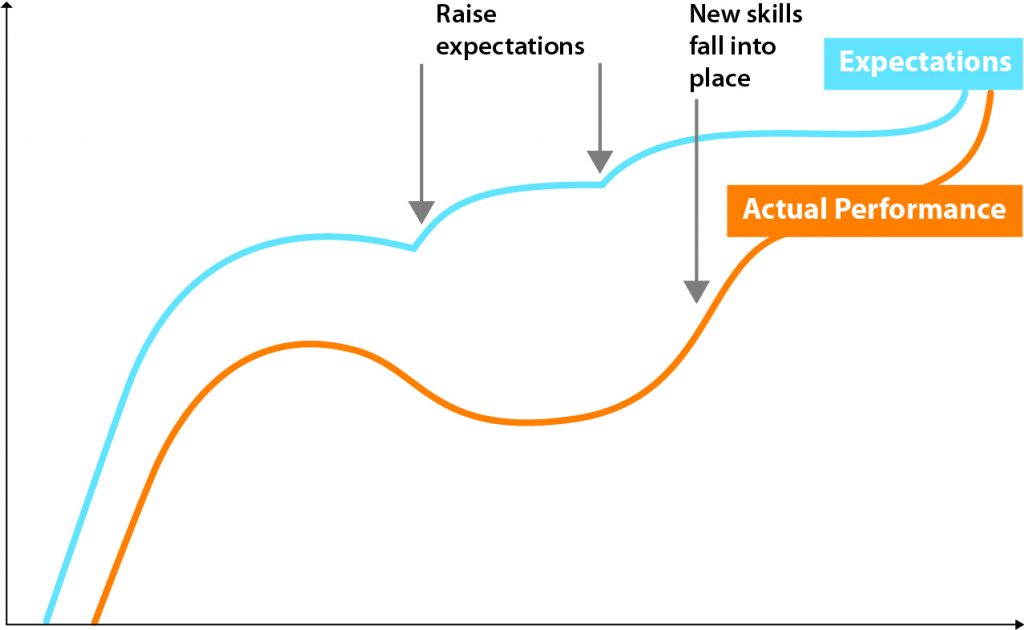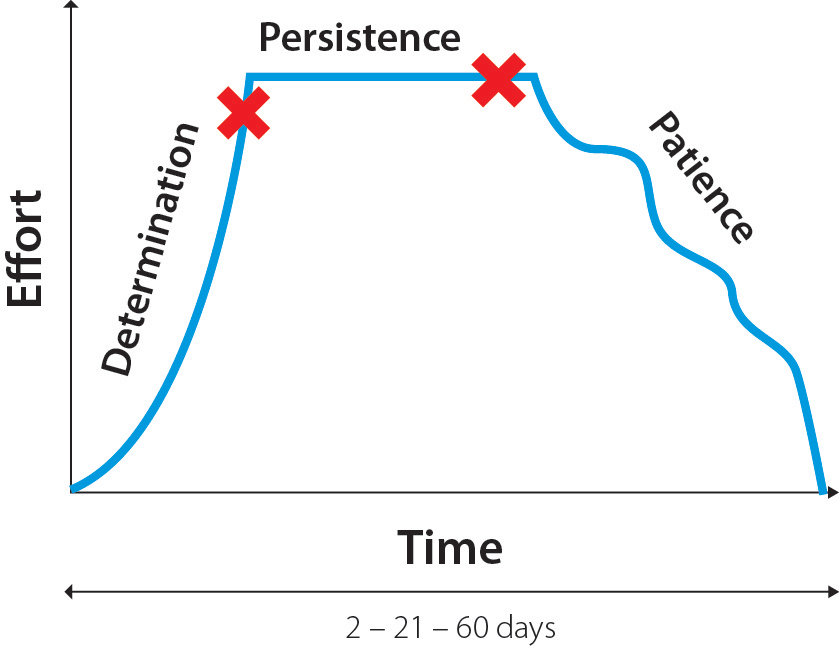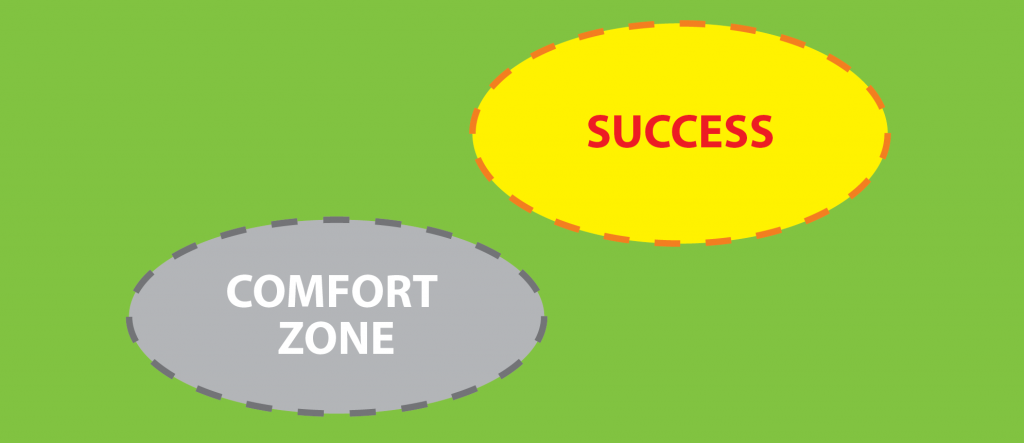Set High Expectations and Push yourself Beyond your Comfort Zone – Speed Reading Technique #34
Summary
Expectations (what you want) usually exceed your actual results – which tends to lead people to reduce their expectations. But then results go down again – until you’re back to old, slow traditional reading habits. Increase your expectations, set tighter time limits, strive for more, read faster – and see your results improve.
A woman went up to Gary Player, the golfer, after he’d just played a particularly difficult shot very successfully. “You were lucky there,” she said. Gary Player looked at her thoughtfully and replied, “You know, it’s a funny thing. I find that the more I practise, the luckier I get.”
As you put the techniques in this book into practice, make sure you raise your expectations about what you can achieve in a limited amount of time. If you have already experienced how much you can achieve in a 20-minute session (speed reading technique >18) working with a book or in a 75-minute syntopic processing session (speed reading technique >22) working with several books, you will also have noticed how much more you achieve in the last third of the time compared to the first two-thirds.
Although you are always likely to be a bit slower when you first start a work session (while your brain speeds up), with practice you will realise that:
- the way to get more information is to speed up and look at more pages
- the way to get your brain working more quickly is to speed up (speed reading technique >13)
- if you’re not fully understanding, it is better to go forwards and look at more pages (so you have more information for clarification) rather than looking back at what you have already read.
The more pages you look at and the quicker you read, the quicker your brain will begin to make sense of the material.
Did you know …
… that simply believing that you can improve can lead to improvement? Research (reported in Carol Dweck’s book ‘Mindset: The New Psychology of Success’) has shown that there are two types of people – those who think that intelligence is fixed (fixed mindset – you are either smart, or good at things, or you’re not) or people who understand that intelligence changes as you learn new things (growth mindset). One result is that people who think that their intelligence is fixed tend to try something once and then give up if they don’t succeed immediately. People who know that they can improve if they keep practising, do just that – keep practising, and getting better.
Raise your expectations – push yourself beyond your comfort zone
Actual performance almost always falls short of expectation. You rarely do quite as well as you think you’re going to. Initially, while you are gaining expertise and experience, this is not so obvious because you can see growth. However, as you gain in expertise, there usually comes a point when you ‘plateau’ – you don’t feel you’ve learnt everything there is to learn, but you don’t seem to be making progress (see graphs). Read more about why pushing yourself beyond your comfort zone is essential for learning
A common response at this ‘crisis point’ is to feel a sense of failure and to lower expectations.

Unfortunately, if you lower your expectations, then your actual performance is likely once again to fall short of the revised lower expectation, leading to fewer and fewer positive results.
The way to break out of this vicious circle is to raise your expectations. Even if your performance doesn’t match your expectation, you will still be improving.

By the way, if you combine raising your expectations with being satisfied when you achieve 80% of your purpose (see 80/20 rule, speed reading technique >5), you will continue both to improve your actual success rate, as well as feeling good about your progress – turning a vicious circle into a ‘virtuous spiral’.
EXPERT TIP In order to understand, go quicker, not slower; read more, not less
Develop good habits
Initially, when you learn any new skill, it usually takes quite a lot of effort (see diagram). After that you don’t need to put in more effort, but you do need to sustain the effort for a while. Then gradually you need to make less and less effort as your new skill becomes a habit.
By the way, if you combine raising your expectations with being satisfied when you achieve 80% of your purpose (see 80/20 rule, speed reading technique >5), you will continue both to improve your actual success rate, as well as feeling good about your progress – turning a vicious circle into a ‘virtuous spiral’.

Ironically, people tend to give up just before things start getting easier – especially if they haven’t seen this diagram. They think that if they have to keep putting in effort, then it isn’t worth carrying on. Whereas all you need to do is keep putting the new skill into practice and maintain some initial determination, followed by persistence and patience, and at some point you will notice that this is something you can do effortlessly.
By the way … Most adults give up trying something new if they don’t succeed on the second try! Compare this with young children who do things over and over until they succeed.
“We are what we repeatedly do. Excellence, then, is not an act, but a habit.” Aristotle

